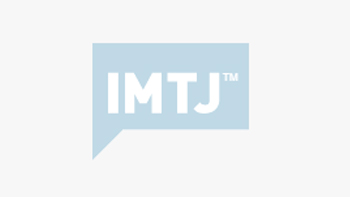An increasing number of Chinese and Japanese women head to Korea for beauty treatments and cosmetic surgery, encouraged by a vogue for Korean actresses among Asia’s young people and a Korean pop culture boom in the region. Many Korean clinics have websites in Chinese and Japanese, as well as English and Korean.
An increasing number of Chinese and Japanese women head to Korea for beauty treatments and cosmetic surgery, encouraged by a vogue for Korean actresses among Asia’s young people and a Korean pop culture boom in the region. Many Korean clinics have websites in Chinese and Japanese, as well as English and Korean.
A dermatology clinic in southern Seoul sees 10 Chinese women a month for cosmetic treatment. More than 90 percent of the patients are professionals or family of executives of large Chinese corporations or high-ranking government officials. They range in age from their 20s to 50s. Korean doctors say most Chinese patients seek dermatological treatment and cosmetic surgery together. Some Chinese women travel twice a year to get their Botox injections renewed. Chinese patients will make the trip from Shanghai to Seoul several times if their surgery has to be done in stages. The Korean cosmetic surgery boom is expanding its reach to Japan. More Japanese are traveling after Japan’s Nihon TV made a programme on a clinic in Seoul.
How long the boom will go on for is debatable as more Chinese doctors and clinics offer Korean style makeovers. Another problem is that cosmetic surgeons in Korea are furious that the Ministry of Strategy and Finance plans to impose VAT on all cosmetic surgery not covered by national health insurance. Under the current law, medical procedures are exempt from VAT. But as of next July, procedures like eyelid surgery, breast augmentation, nose jobs, wrinkle-removing surgery and liposuction will be subject to VAT. Surgeons say VAT is unreasonable as it is a medical practice that treats physical complex of patients. For example, breast augmentation surgery may be equivalent to depression treatment for a woman with small breasts, and liposuction may be done not only out of desire to be more beautiful but also to treat obesity. The government is not convinced by these arguments.
Surgeons fear VAT will depress the booming price –sensitive market as it is likely to raise the cost of surgery by 10 percent. Hwang Young-joong, president of the Korean Association of Plastic Surgeons, says, “The government action is contradictory as it encourages surgeons to attract more foreign patients while putting a dampener on the market with the introduction of new tax.”
Cosmetic surgeons claim the issue is fairness. If the rule is to charge VAT on procedures undergone with the goal of looking more beautiful, then hair transplants, eyesight-corrective LASIK surgery, straightening of teeth, and anti-wrinkle Botox treatment should also be subject to VAT. Clinics offering these services are less than thrilled as the government has taken the suggestion on board as it sees more ways to increase tax revenue by adding VAT to these procedures. Lee Sang-yul, in charge of VAT at the Ministry of Strategy and Finance, says, “All European countries that have VAT impose it on cosmetic surgery. We have not set the range of procedures yet, but we will now expand the range gradually.”








 ©2024 All rights reserved LaingBuisson
©2024 All rights reserved LaingBuisson 


